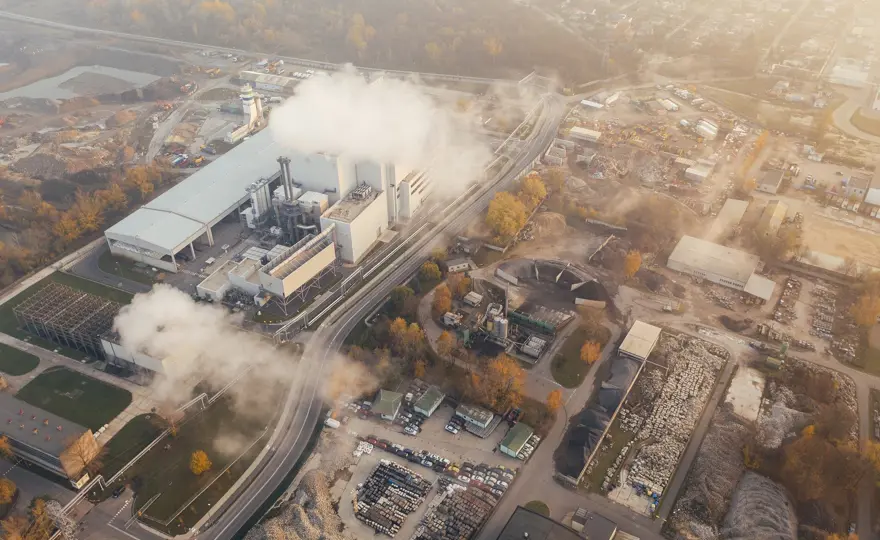ClientEarth Communications
17th March 2021


Did you know that the law that regulates pollution from all of the EU’s factories, farms and power plants doesn’t put a limit on the greenhouse gases (GHGs) they emit?
There are over 50,000 of these ‘industrial installations’ in the EU, and governed by this law – from chemical and plastics plants, energy production and waste management to textiles manufacture and animal rearing.
While they are there to provide us with services we may need, they are simultaneously causing harm.
Industrial activities produce over half of the EU’s total carbon emissions.
And as industrial facilities operate, they pollute the environment with substances that we know are harmful to people, ecosystems and the climate – in the form of gases from their chimneys, and residue that goes into the ground and watercourses.
Whether it’s arsenic, mercury, sulphur dioxide or industrial dust, these substances put our health in immediate danger.
That’s why the Industrial Emissions Directive (IED) exists. Technical though it sounds, this piece of law is a lifesaver, one of the main mechanisms at work in the EU to protect all of our health. It is the basis for limits on polluting emissions from industry that are known to be toxic, cause cancer, and affect fertility.
But incredibly, this law, which is the main tool the EU has to limit industry emissions, does not put a cap on carbon and other GHGs.
We also know that the limits set on many of these polluting chemicals are too loose to protect us and the natural world fully.
This law is about to change. That means it’s your moment to act.
ClientEarth’s lawyers are experts in the IED. We look in particular at coal plants all over the EU and see how they get their permits to operate, whether these permits comply with the IED – and eventually whether the plants are complying with their permits.
Basically, we look at whether the IED is being applied in a way that protects us like it’s supposed to. We take cases to protect health and nature using this law.
We’ve worked to defend communities from Bulgaria to Greece to Spain, by challenging industrial operators who are not respecting the IED – or are convincing governments to let them off the hook with special permission to pollute at dangerously high levels.
But what concerns us now is whether the IED is strong enough – whether pollution limits are set right; whether companies are too often getting free passes to sidestep the rules; and whether the thousands of communities affected by industrial pollution are actually able to have their voices heard.
This last point is important. The people living in or near industrial areas are often part of economic or ethnic minorities – meaning that health impacts are skewed disproportionately towards already underprivileged groups. It is vital that as well as strong limits on pollution, the IED beefs up its commitment to public participation in industrial decision-making.
Changing the IED is crucial to reaching the goals of the European Green Deal.
Here are some key numbers to get your head around:
5,300 tonnes: The amount of heavy metal particles EU industry emits every year. That’s about 800 elephants’ worth of lead, mercury, arsenic and more. Minute quantities of these metals are toxic to humans – bringing IQ down in children, for example. This is an acutely worrying number.
400,000: The number of premature deaths from air pollution across the EU – to which industry is a major contributor.
50,000: The number of industrial operations in the EU governed by the IED – and whose climate impacts aren’t being regulated by it.
1: Law that you have the chance to change, to stop this.
You can sign our petition, joining thousands across Europe, to call for: